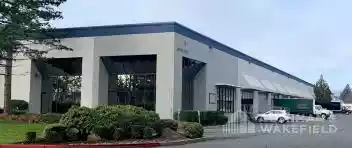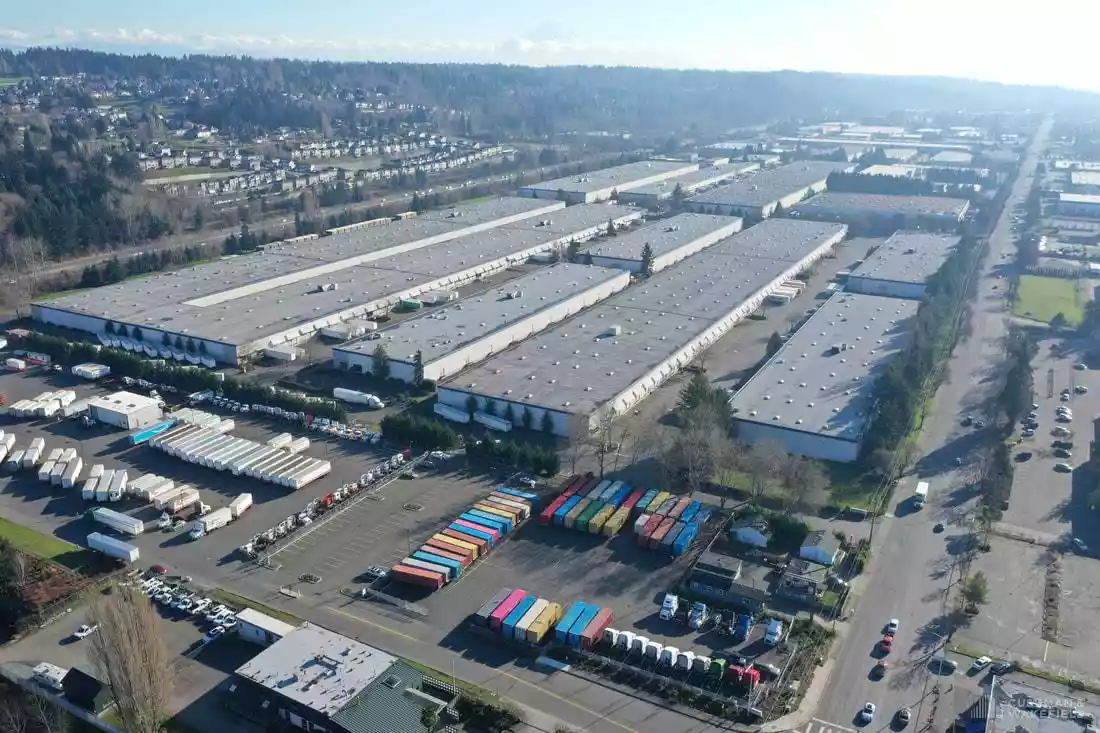8.0% Vacancy
Rate
$0.98 Asking Rent,
PSF/Monthly

Latest Industrial Space Listings in Seattle


Warehouse/Distribution
Northwest Corporate Park Kent - Bldg B
20003-20021 85th Ave S
Kent, WA 98031
United States
Rental Price: Contact us for pricing


Warehouse/Distribution
Valley Centre Corporate Park - Bldg 4
2302 B St NW
Auburn, WA 98001-1747
United States
Rental Price: Contact us for pricing


Warehouse/Distribution
Northwest Corporate Park Kent - Bldg D
19801-19821 87th Ave S
Kent, WA 98031-1262
United States
Rental Price: Contact us for pricing


Warehouse/Distribution
SODO Urbanworks - Rear Bldg
3851 1st Ave S
Seattle, WA 98134-2203
United States
Rental Price: $10.08 (Annual) USD


Warehouse/Distribution
Hill Industrial Park - Bldg 187-E
8825 S 184th St
Kent, WA 98031-1232
United States
Rental Price: Contact us for pricing


Warehouse/Distribution
Northwest Corporate Park Kent - Bldg F
19002-20026 87th Ave S
Kent, WA 98031
United States
Rental Price: $9.48 (Annual) USD


Warehouse/Distribution
Aldarra Corporate Park - LA-Z-Boy
21214 66th Ave S, #21214
Kent, WA 98032
United States
Rental Price: Contact us for pricing


Warehouse/Distribution
Shoring Plus, Inc.
7829 S 206th St
Kent, WA 98032-1354
United States
Rental Price: Contact us for pricing
Why implement your industrial space in Seattle?
Seattle boasts a robust market for industrial space for lease, catering to the diverse needs of businesses across various industries. With a strategic location and excellent transportation infrastructure, the city is an ideal hub for warehousing, manufacturing, and distribution operations. From large-scale warehouses capable of accommodating substantial inventory to flexible industrial spaces designed for smaller businesses, Seattle offers a range of options to suit different requirements.
"These industrial properties often come equipped with modern amenities, advanced logistics capabilities, and proximity to major transportation hubs, including the Port of Seattle and Sea-Tac International Airport. With a thriving economy and a skilled workforce, leasing industrial and office space in Seattle provides businesses with a strategic advantage in reaching local, regional, and international markets while being part of a dynamic and innovative business community."
How much does it cost to rent an industrial space in Seattle?
The cost of renting an industrial space in Seattle can vary significantly depending on various factors such as the location, size, amenities, lease terms, and the current real estate market conditions.To read: our Seattle MarketBeat Industrial report analyzes quarterly economic and commercial real estate activity including supply, demand and pricing trends at the market and submarket levels.
Are industrial space rents likely to increase in Seattle?
Factors such as population growth, economic conditions, industry expansion, and infrastructure development can all influence the rental market dynamics. Seattle's continued growth as a technology and trade hub, along with its strategic location and access to major transportation routes, may contribute to the upward pressure on industrial space rents.
However, it's important to consider that market conditions can change, and multiple factors can influence rental rates over time. Fluctuations in the economy, shifts in industry trends, and changes in supply and demand dynamics can impact rental prices in the future.
Popular neighborhoods in Seattle
Seattle offers a variety of popular neighborhoods for leasing industrial space, each with its own unique characteristics and advantages. Here are a few notable neighborhoods known for their industrial areas:
- Georgetown: Located south of downtown Seattle, Georgetown is known for its industrial charm. It offers a mix of older warehouses and industrial buildings that have been repurposed for various businesses. Georgetown's proximity to major transportation routes and the Port of Seattle makes it an attractive location for industrial leasing.
- SODO (South of Downtown): Just south of downtown Seattle, SODO is a bustling industrial district. It is home to a wide range of industries, including manufacturing, distribution, and logistics. The area benefits from its proximity to major highways, rail lines, and the Port of Seattle.
- Ballard: Situated in the northwest part of the city, Ballard has a mix of industrial and commercial spaces. The neighborhood offers a unique blend of industrial charm and trendy amenities. With its waterfront location and proximity to major transportation routes, Ballard is an appealing option for industrial leasing.
- Interbay: Located between Ballard and downtown Seattle, Interbay is an emerging neighborhood for industrial and commercial activity. It offers a range of industrial spaces and warehouses, often with convenient access to highways and transportation corridors.
- Rainier Valley: Situated southeast of downtown, Rainier Valley has a growing industrial presence. It provides a mix of industrial buildings suitable for various businesses, including light manufacturing and distribution. The area benefits from its proximity to major transportation routes and the Port of Seattle.
Getting to and from Seattle
Seattle is well-connected and offers several transportation options for getting to and from the city:
- Sea-Tac International Airport: Seattle is served by Sea-Tac International Airport, located about 14 miles south of downtown. It is a major airport with numerous domestic and international flights, making it easy to reach Seattle from various destinations.
- Public Transportation: Seattle has an extensive public transportation system, including buses, light rail, and streetcars. King County Metro operates bus routes throughout the city and surrounding areas, while Sound Transit provides light rail services connecting downtown Seattle with the airport and neighboring cities like Bellevue and Tacoma.
- Amtrak: Seattle's King Street Station is a hub for Amtrak train services, offering connections to various cities in the region and beyond. Amtrak's Cascades route, for example, runs from Vancouver, Canada, through Seattle, to Portland and Eugene, Oregon.
- Interstate Highways: Several major interstate highways serve Seattle, including Interstate 5 (I-5), which runs north-south through the city and connects it to neighboring states like Oregon and California. Interstate 90 (I-90) provides an east-west connection to cities like Spokane, Washington, and ultimately reaches the East Coast.
- Ferries: Seattle is surrounded by water, and ferry services are available for transportation to nearby islands and other coastal destinations. Washington State Ferries operate from terminals in downtown Seattle, offering routes to places like Bainbridge Island, Bremerton, and the San Juan Islands.
Commercial Real Estate Services in Seattle, Washington
Seattle Related Insights

MarketBeat

Article
U.S. Industrial Sublease Space Trends